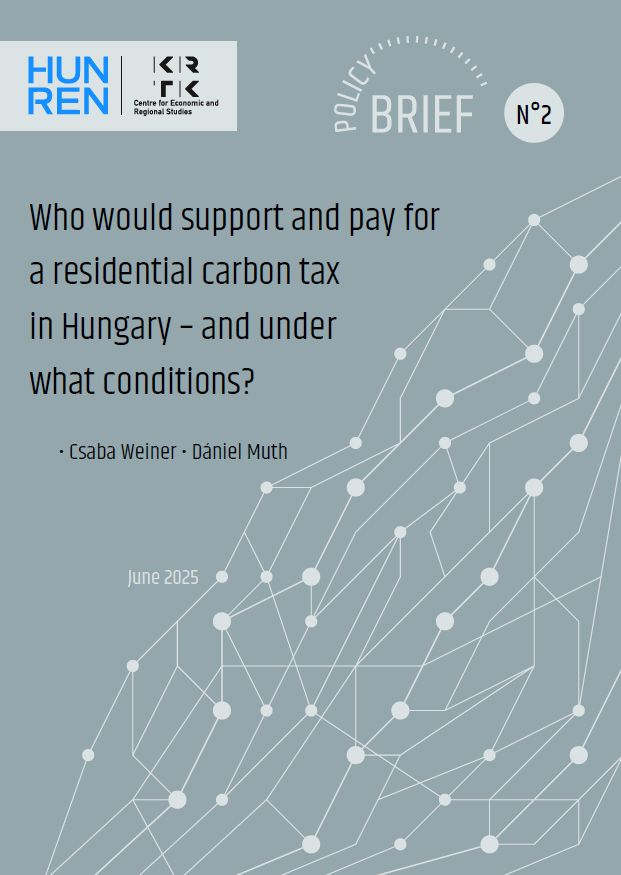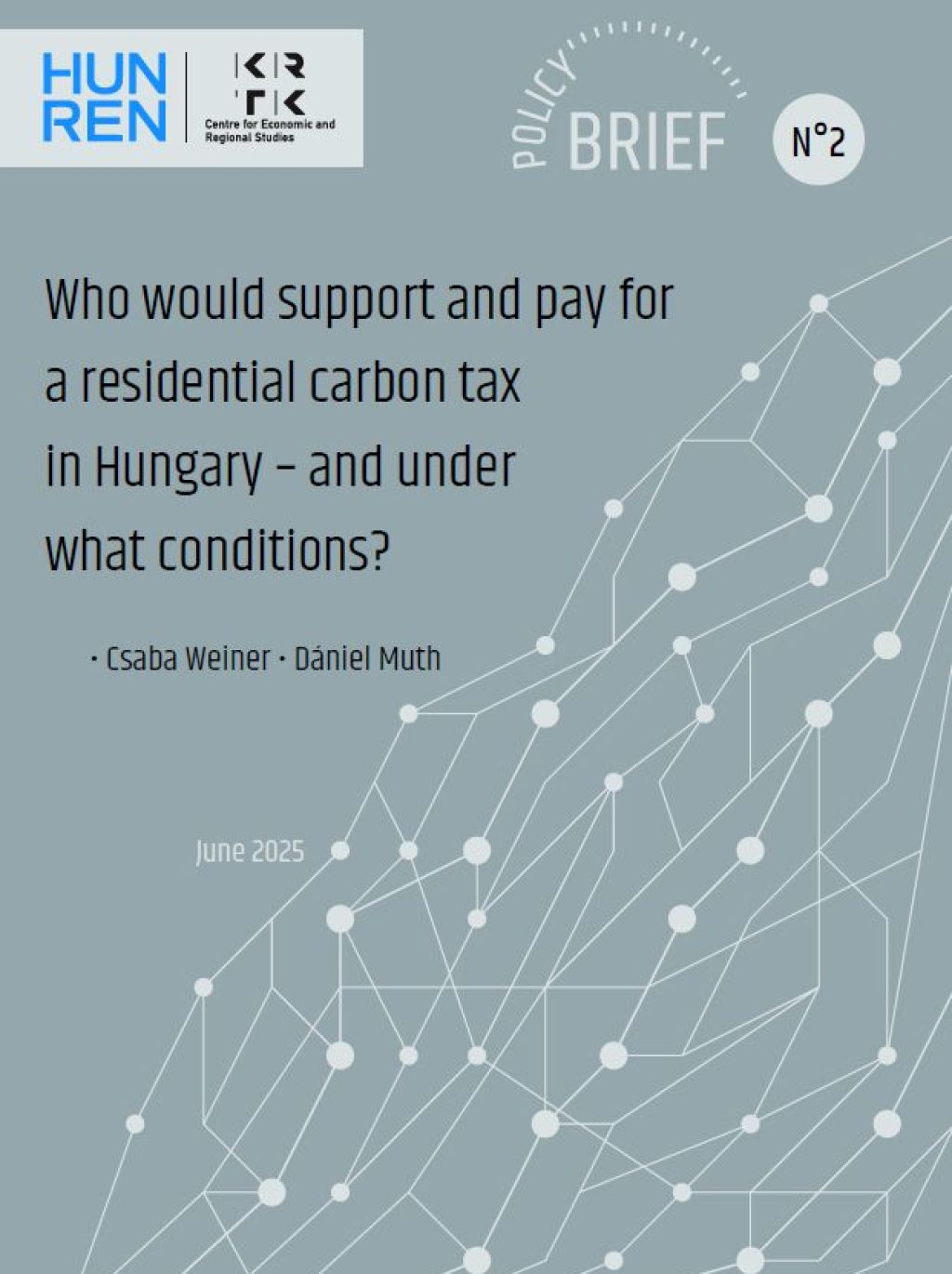Who would support and payfor a residential carbon tax in Hungary – and under what conditions?
Authors: Csaba Weiner, Dániel Muth
In: Policy Brief N°2 – KRTK
Abstract
Anthropogenic carbon dioxide emissions, primarily from the combustion of fossil fuels, are the main driver of climate change. Reducing these emissions is therefore essential. One way to do so is through carbon pricing, which gives emissions a cost and thereby encourages households and businesses to adjust their behaviour to minimise expenses. Two key instruments are carbon taxes and emissions trading systems (ETS).
As part of its climate goals, the EU will extend the ETS to the building and transport sectors in 2027, aiming to reduce greenhouse gas emissions by at least 55% by 2030 compared to 1990 levels. This is expected to raise the price of heating fuels and motor fuels – directly affecting household well-being in Hungary.
Public acceptance of carbon pricing largely depends on how fair and effective people perceive these policies to be. Carbon pricing tends to place a relatively higher burden on poorer households: demand for heating and transport fuels is relatively inelastic, while low-emission alternatives such as heat pumps and electric vehicles remain expensive. At the same time, carbon taxes generate significant public revenue, which can be recycled to improve economic, social, and environmental conditions – potentially increasing public support.
This brief examines the level of public acceptance of, and willingness to pay (WTP) for, a carbon tax in Hungary, as well as how revenue recycling measures may influence these attitudes.




